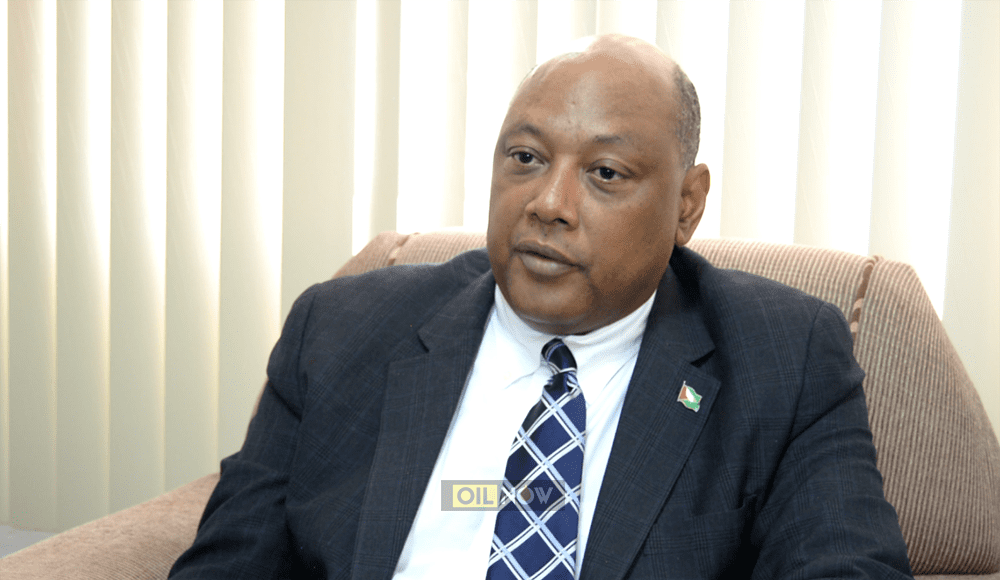Guyana’s Minister of Natural Resources Raphael Trotman says the South American country is set to receive billions of dollars in oil revenue and one of the most important discussions that should be taking place is how that windfall will be invested to the betterment of the Guyanese people.
Speaking on a recent radio programme in Georgetown, Trotman, who held responsibility for the petroleum sector prior to it moving to the Department of Energy, said criticism of the terms outlined in the Production Sharing Agreement (PSA) the country has with US oil major ExxonMobil is being made for the most part by people who have little to no experience in oil and gas.
Asked by host of the programme, Kiana Wilburg, if the government has given away Guyana’s oil resource for less than it is worth, as critics suggest, Trotman said a number of reputable international agencies and experts in the oil and gas field do not seem to share this view.
“Thankfully, I read the newspapers and I have access to reports from international respectable and respected agencies that are filled with multi-talented persons, many of whom I have met. Some of them have come to Guyana and they tell me a different story, so the question comes down to whose report do I believe,” he said.
Under the PSA terms for the Stabroek Block where ExxonMobil has found more than 6 billion barrels of oil equivalent, Guyana is set to receive 2 percent royalty and half the profits.
Mr. Trotman said as some Guyanese continue to be overly critical of the sector, there are those on the international scene that are recognizing its value.
The IMF forecasts that the economy will grow 86% in 2020 as oil production comes online, and average 13.7% growth over the following four years – 14 times the projected pace of China. The Fund says its forecast may be subject to large revisions, since even small changes to the projected oil output in 2020 would result in big swings in the overall economic performance.
Norway-headquartered Rystad Energy has said based on the PSA terms; the country is set to receive more than US$120 billion from development of the 14 discoveries made at Stabroek Block so far.
“What this Government and future Governments do with the 120 billion dollars – that is the discussion that we should be having, because history will judge us and put aside this lie that we will earn nothing,” Mr. Trotman stated.
However, he said in retrospect, there is always room for improvement, and this is something government is cognizant of, particularly as it relates to its ability to communicate more effectively with the public.
“I would be the first to admit that we should have done better with this than we have done. But the minute you step out of Guyana, whether you are in Trinidad and Tobago or Barbados, or Ireland or London, there is an excitement about Guyana and we have not been able to tell our story and the truth is, as a Government, we have allowed a few people to hijack the story and paint it as all bad and negative,” he stated.
The small country of just over 750,000 people has been pushing to ensure all systems are in place for oil production, now potentially just weeks away, but political uncertainty brought on by a no-confidence vote against the government last December has delayed the passage of key legislation. The Natural Resources Fund, Guyana’s version of a Sovereign Wealth Fund, is also not operational since a key oversight committee is yet to be established.
“This kind of wealth has the potential to destroy us and it is very frightening, and I tell people in my office whenever I got the update or the phone call or the notification of a new discovery, I felt a weight on me. So, while for some it was euphoria, the weight of responsibility is greater,” the natural resources minister pointed out.



